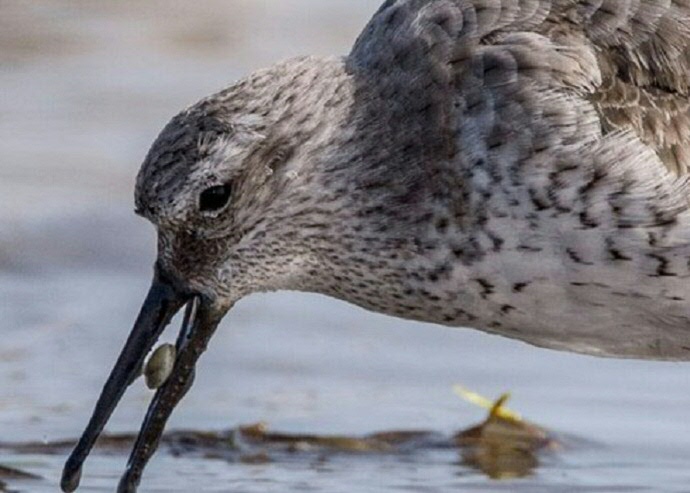Kleiner wordende trekvogel betaalt prijs voor klimaatverandering

Kuikens van kanoeten blijken tegenwoordig kleiner te zijn dan voorheen, vermoedelijk omdat ze te laat geboren worden en daardoor de insectenpiek mislopen. De kanoeten, die heen en weer trekken tussen hun broedgebied bij de Noordpool en hun overwinteringsgebied in de West-Afrikaanse tropen, kunnen met hun kortere snavels op de Afrikaanse wadden niet meer bij hun favoriete schelpdiervoedsel. Deze bevindingen zijn 13 mei 2016 als coverartikel in Science gepubliceerd door een internationale groep wetenschappers, waaronder RUG-hoogleraar trekvogelecologie Theunis Piersma, uit Nederland (NIOZ en Rijksuniversiteit Groningen), Australië , Frankrijk , Polen en Rusland.
Bron: persbericht NIOZ Koninklijk Nederlands Instituut voor Onderzoek der Zee
Meer nieuws
-
17 februari 2026
De lange zoektocht naar nieuwe fysica
-
10 februari 2026
Waarom slechts een klein aantal planeten geschikt is voor leven
